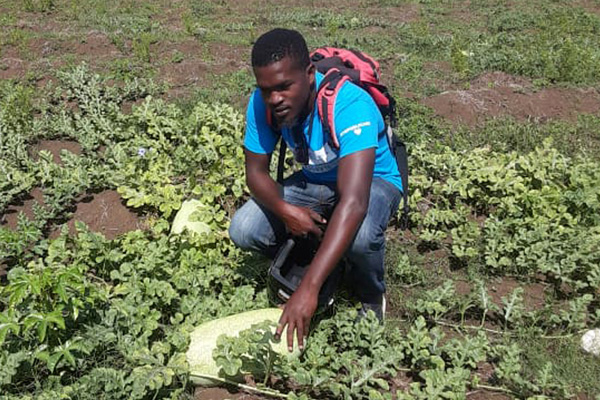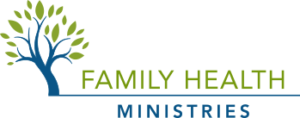Community Garden
What Do You Do With a Fenced Piece of Land?
by In-Country Director, Michael Anello
In May of 2007, Family Health Ministries (FHM) had the opportunity to purchase three carreau of land, which is just short of 10 acres, in Leogane, Haiti. After the Earthquake in 2010, FHM started construction on the Nancy Ferree-Clark Guesthouse. The guesthouse was opened for business in the summer of 2012 with a group of Duke University students. Over the years the guesthouse has been a gathering place for many FHM mission teams, as well as groups from numerous other organizations. This building has also been the home for our in-country director and serves as the FHM office in Haiti. Additionally, it houses the HPV lab that runs samples to screen for cervical cancer.

Back in the early days of the guesthouse, the large parcel of land was used for growing sugar cane, and the funds raised went back to the community. Over time, the production of sugar cane fell off as the plants aged and were not maintained. Last year, we fenced the property to increase security. This ‘fence’ is made of short posts and barbwire. It is enough to keep the goats off of the property…. most of the time.
While fencing the property, we discovered an old hand-dug well. This was the spark for an idea. What can you do with a fenced piece of property and a water source in Haiti? You can open a community garden.
Early in 2022, FHM decided to put our land to good use. We hired a young graduate from the Agronomy School in Hinche, Jameson Avril, and together, we started the community garden. The garden uses approximately a third of the land to grow vegetables and a third of land to grow trees.
The success of this project is not measured by profit. The garden has been used for outreach to the Leogane community in a variety of ways. The community garden provides jobs for local Haitians. There are no John Deere tractors in Haiti to till the soil; everything is done by hand. We also hire workers to plant the crops and harvest the vegetables. So far this year, we have planted tomato, hot pepper, and eggplant, our bumper crops. In addition, we have planted cucumber, cabbage, watermelon, sweet pepper, carrot, and a variety of herbs. We have also planted plantain, mango, and avocado trees which will produce fruit next year.
Women in the community stop by the garden to purchase the harvested vegetables at a discounted wholesale price. They sell the vegetables in the local market, making a profit that feeds their families. This is especially important right now, as Haiti’s economy is in a free fall and food scarcity is a significant problem. Surplus produce goes to FHM staff and their families. Any funds collected from the sale of the vegetables go back into buying more seed and paying the workers.
For the Fall, we are exploring the possibility of giving small plots of land to primary schools for children to begin to learn the value of growing vegetables and taking care of the land. Our hope is to branch into learning about nutrition and farming. The possibilities are endless.
